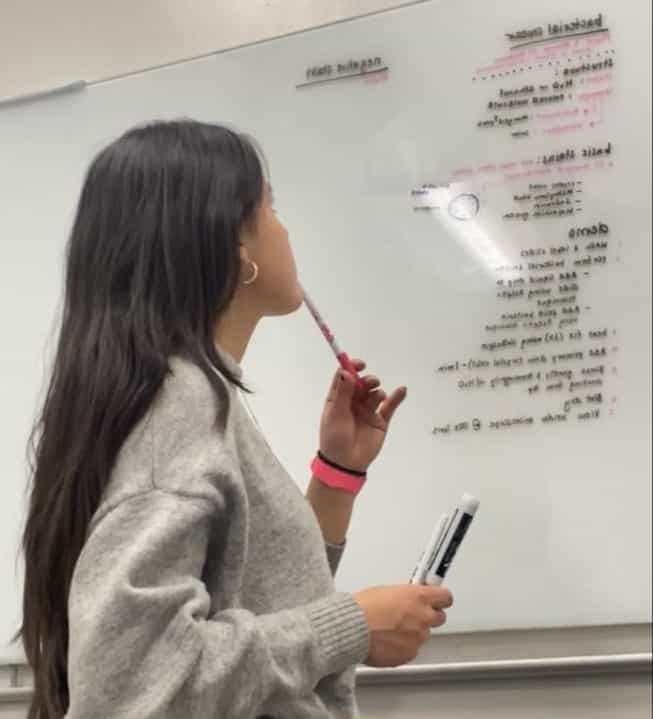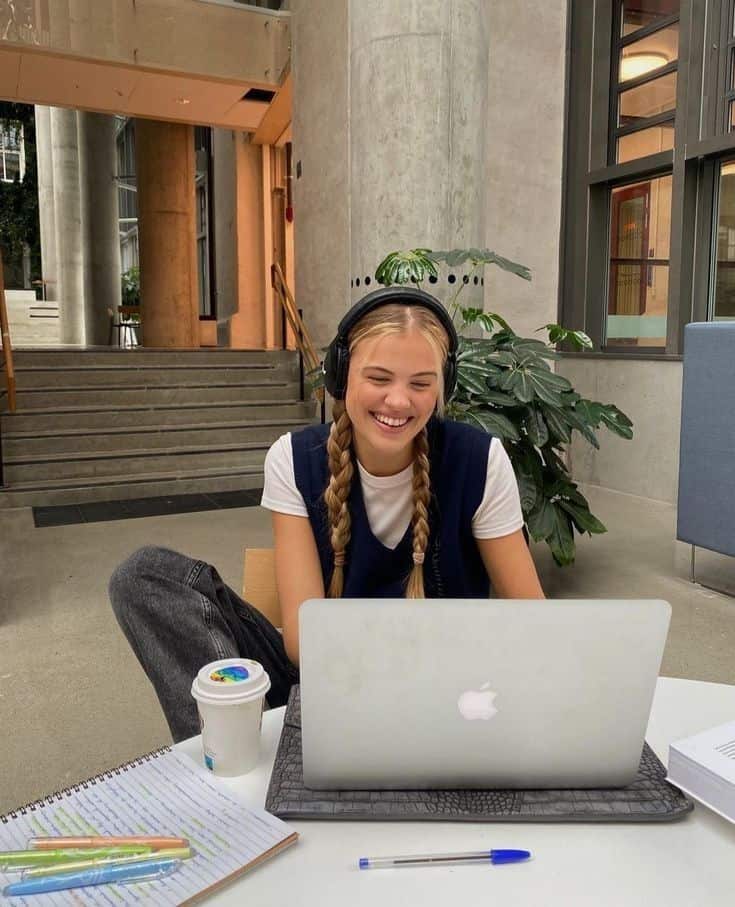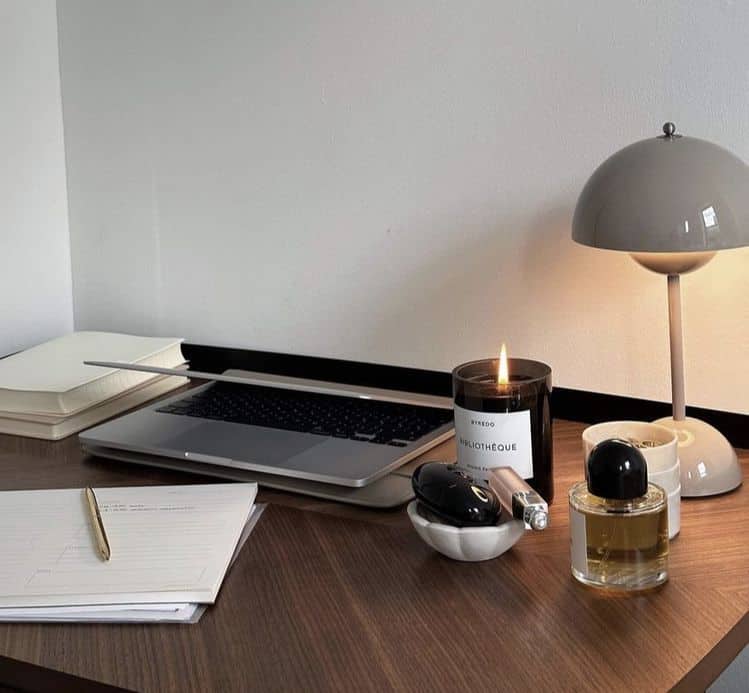picture via pinterest
Study Habits
Often we feel nervous because we think we’re not prepared enough and therefore not capable. However, most times we are actually well prepared for what’s to come.
To ensure you’re actually well prepared, have effective study habits in place. Have detailed schedules where you block certain times to focus on studying almost every day. Find a way to make studying a consistent habit.
If you struggle with the fear of being unprepared, have a visual habit tracker. Recently I’ve made one for reading 20 pages. I took two jars, one empty and the other filled with paperclips. Whenever I read 20 pages I would move one clip into the empty jar. Over time the paperclips accumulate and I have a visual representation of my effort.
So whenever you feel like you didn’t prepare enough, take a deep breath and list in your head what you’ve done to prepare or think of your visual habit tracker.
Affirmations & Self-Concept
Change the way you think about yourself and how you think about exams.
I’ve written an entire article about self-concept you can read if you’re interested in that. Basically, if you believe you’ve always been a person that was nervous before exams and did or believes they did poorly your mind will always urge behaviors that confirm this belief you have about yourself. In Psychology, this is called the “Self-fulfilling prophecy”.
Now if you change the narrative to I’m no longer this person that I thought I was, I’m actually a person that is always confident going into exams, your mind will shift.
Changing your perspective 180 degrees will take time and effort and is driven by three factors: thoughts, affirmations, and actions. More about that is in my other blog post.
Mindfulness Practices
It is extremely important to know how to move out of an anxious state. Learn how to control your thoughts through for example meditation. Find breathing exercises that help you to calm down your nervous system, try progressive muscle relaxation, or explore other techniques to calm your nerves.
Nervousness is pretty common amongst students, only the intensity varies. Don’t get freaked out over the fact that you’re nervous.
For me, a normal amount of nervousness actually boosts my performance.
Mindfulness practices don’t take all the anxiety away but they do help in soothing the intensity.
Avoid comparison & perfectionism
When dealing with exam anxiety, comparison is the worst thing to do. While at times a competitive spirit can encourage motivation, most times it will be poison for your performance. You are on your own individual path in life and therefore there’s no one behind and before you that you have to compete with.
All your focus needs to go towards you and how to make the most out of this exam which is to give your absolute best. That is the control you have at that moment.
In life, it is important to focus on what you can control because over everything else you have no influence and therefore it’s a waste of energy to worry about it. (it’s hard i know.)
Avoid perfectionism at all costs. When studying but also mid-exam.
It’s more efficient to try to answer a question you don’t know the answer to than to not try and think at all.
Perfectionism is one of the most common reasons for procrastination, especially common in procrastinating school work and studying.
Visualize the situation
A practice I’ve been doing recently is visualizing certain uncomfortable situations before going into them. I visualize the situation as I expect it to happen. I don’t focus on the external circumstance instead I set intentions for my behavior, the only factor I can control.
Make yourself familiar with the exam situation and visualize your desired behavior:
Imagine walking into the exam room wearing an outfit that you feel confident in. You sit down and get out your pens, you have everything you need because you carefully prepared last night. You get handed the exam, take a deep breath and start answering the questions. Question two makes you feel unsure but you think about it and imagine different concepts in your head instead of freaking out. Then you write down the approach that seems right to you. The other questions are easy since you studied consistently. You hand in the exam and walk out of the room relieved. A couple of days later you get the score you hoped for.
Make sure to get enough rest
Sleep and rest are proven to benefit cognitive function, memory consolidation and emotional regulation. So get enough rest, it will not only help memorize and understand material but also improve your mood.
Stay physically active
Regular exercise is an excellent stress reliever.
Engage your body in regular movement which can range from a heavy full body workout to yoga or going for a brisk walk.
Exercise boots endorphin levers, promoting a positive outlook and reducing anxiety.
Get comfortable getting uncomfortable
The more I put myself in uncomfortable nervous situations the more confident, calm, and collected I became. The more I endured my social anxiety and nervousness the more Iearned to deal with it and the less scary uncomfortable situations such as interviews or exams became. Increase the intensity of the situations as you get more secure in difficult scenarios.
Life is not meant to be comfortable and success lies in temporary discomfort whether that’s hard tasks, social interactions, exams, or anything else that doesn’t provide us immediate satisfaction.
Seek support
If you struggle heavily with anxiety, seek support from your loved ones or from a professional. Therapy isn’t just for you if you’re heavily struggling, it’s great to seek support and guidance in general. Don’t be afraid to reach out to people.












